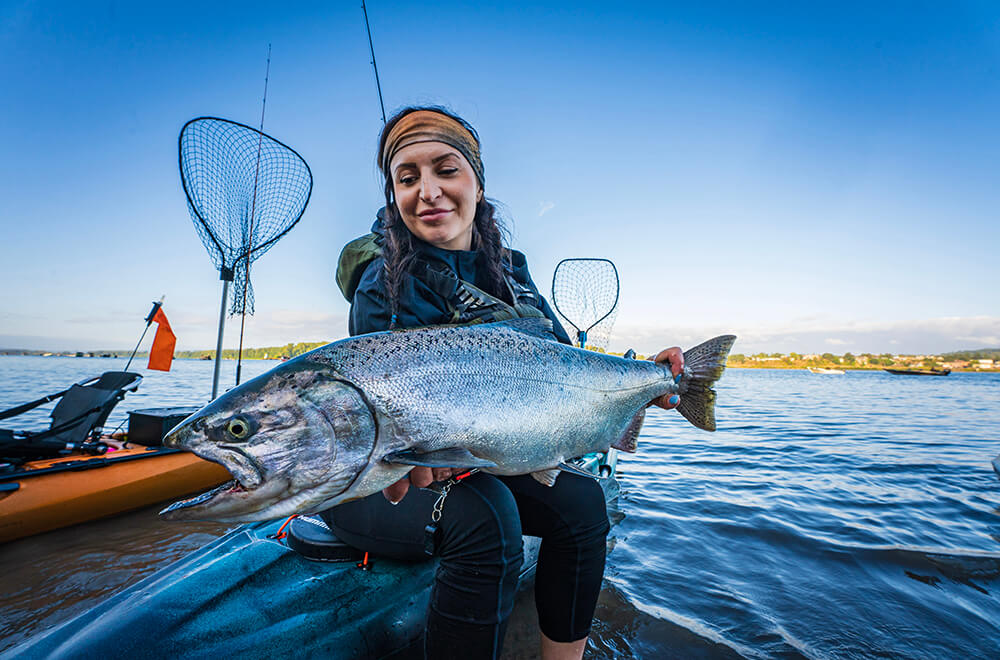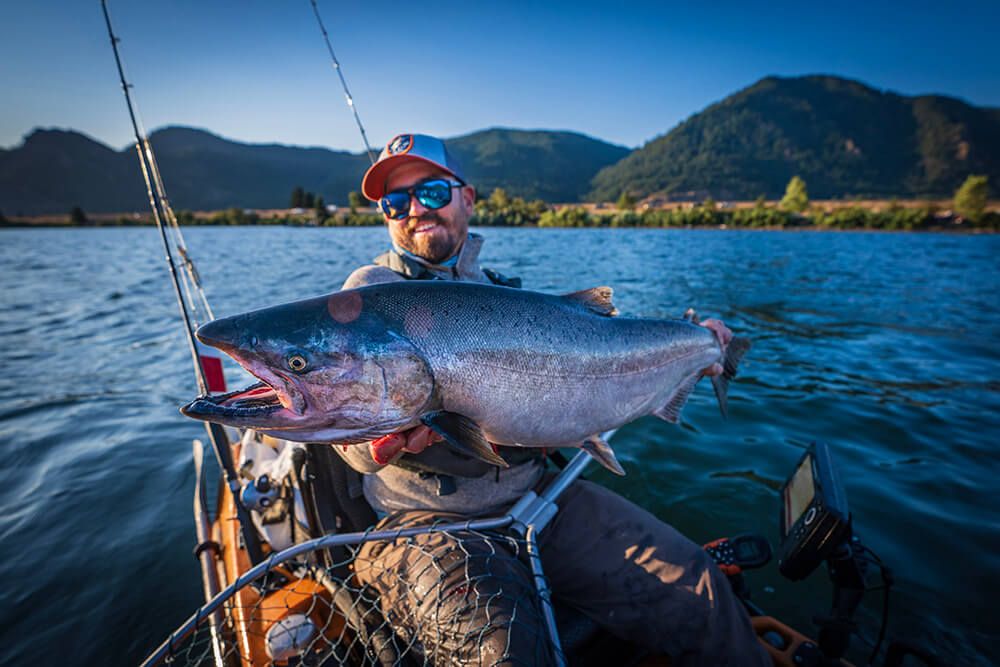Getting Involved In Salmon Conservation
Chinook (King) salmon play a fundamental role in the ecology and health of our forests. They also play a critical role in our society, both culturally and economically. Though Chinook salmon are known nowadays primarily as a gamefish for recreational anglers, salmon have been woven into the identity and history of the Pacific Northwest for millennia.
For Old Town ambassador and avid salmon angler Ashley Lewis, salmon fishing is a way to connect with her tribe, the Quinault Nation.
"Quinaults are salmon people. It's so ingrained into who we are and everything that we do and is a major driver of our economy out in Tahuya, Washington. When I decided I wanted to spend more time close to my tribe and learn more about my culture, the way that I chose to do that was through fishing. The eight years that I spent as a Quinault and Quileute's guide are some of the best years of my life. Not only did I learn a lot about my culture, but I learned how to be a skilled and experienced salmon and steelhead angler."
According to Ecologist and YouTuber Tyler Hicks, the state of the salmon fisheries in the Pacific Northwest is in pretty bad shape. With the impacts of climate change, unsustainable harvest practices, dams, habitat loss, and predation, salmon are experiencing a range-wide decline in numbers.
"Salmon are a keystone species, so when they are in trouble, literally everything around us is in trouble. We need to do a better job at taking care of the places that we have now protecting them, ensuring that we aren't further damaging this habitat."
While guiding taught Lewis a lot about salmon fisheries and how to be a skilled angler, the biggest lesson she learned is how much support salmon actually need.
"If salmon fishing dried up or collapsed altogether, this is the very fabric of who we are as an indigenous people. We are the people that have been here since time immemorial. We have been the keepers of this resource. And so to have that dissolved is to really break apart everything that makes us who we are."

HOW TO GET INVOLVED IN SALMON CONSERVATION
One of the most critical things when it comes to the future of Chinook salmon in the Pacific Northwest is habitat restoration. While hatcheries certainly play the role in terms of maintaining recreational fishing opportunities, the ultimate goal is to have self-sustaining fish populations that don't require hatchery supplementation. To achieve this, projects like removing dams, restoring riparian areas, and making sure fish have suitable spawning grounds are key to moving forward.
What can you do as an angler, conservationist, or simply as a concerned citizen? According to Hicks, there are a lot of ways you can get involved.
"You can reach out to your local representatives and give salmon a voice by promoting clean water, restoring watershed connectivity, and also looking at protecting these watersheds from potential development."
SALMON CONSERVATION ORGANIZATIONS YOU CAN SUPPORT
- Northwest Indian Fisheries Commission
- Coastal Conservation Association
- Association of Northwest Steelheaders
- Northwest Sportfishing Industry Association
- Billy Frank Jr. Salmon Coalition
 Photographs taken by Scott Niska.
Photographs taken by Scott Niska.






